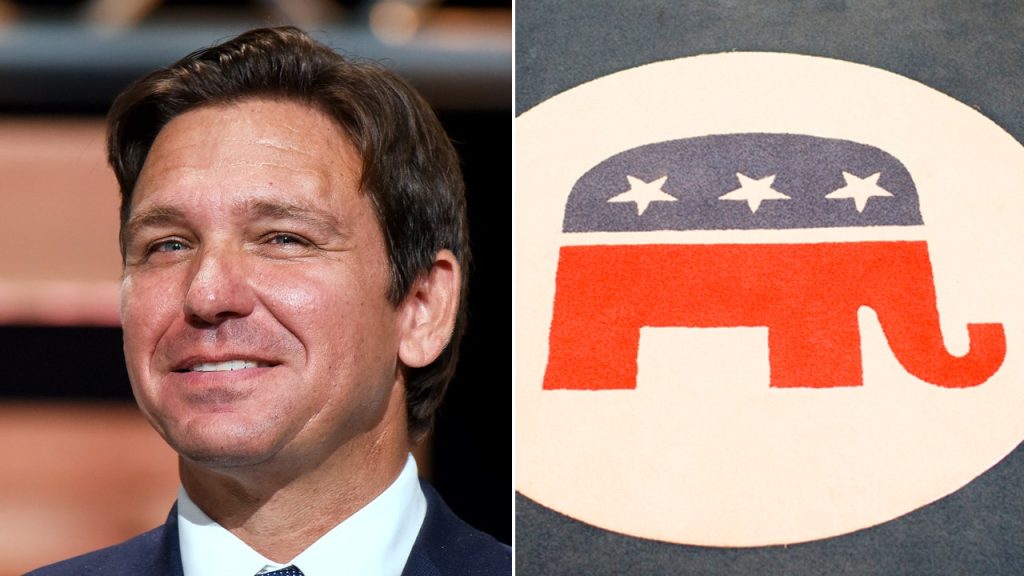Florida state Representative Susan Valdés, a recently re-elected Democrat, has sent shockwaves through the political landscape by announcing her switch to the Republican Party. This unexpected move has sparked controversy and raised questions about her motivations, prompting strong reactions from both Democrats and Republicans. Valdés justified her decision by citing a lack of respect and a sense of being ignored within the Democratic caucus. She expressed frustration at feeling unable to effectively represent the needs of her community while remaining aligned with the Democratic Party. This perceived inability to bridge the gap between party loyalty and constituent needs ultimately led her to seek a more welcoming and accommodating political home within the Republican Party.
Valdés’s party switch comes shortly after her bid for the chair of the Hillsborough County Democratic Executive Committee, further fueling speculation and criticism. Opponents have accused her of political opportunism and betraying the trust of her constituents, who voted for a Democrat to represent their interests. Vanessa Lester, chair of the Hillsborough County Democratic Party, expressed disappointment and questioned Valdés’s sincerity, suggesting that she might have been contemplating the switch even while seeking a leadership position within the Democratic Party. This perceived duplicity has understandably angered many Democrats who feel misled by Valdés’s actions. The timing of her switch casts a shadow over her previous campaign and raises concerns about the genuineness of her commitment to the Democratic platform.
The Republican Party, on the other hand, has welcomed Valdés with open arms. Florida Governor Ron DeSantis celebrated her decision on social media, highlighting the growing Republican majority in the Florida House of Representatives. This enthusiastic reception underscores the strategic significance of Valdés’s defection, bolstering Republican influence within the state legislature. Valdés’s move also serves as a symbolic victory for the Republican Party, demonstrating its ability to attract members from across the political spectrum. Her decision contributes to the narrative of a growing Republican wave in Florida, potentially signaling further shifts in the state’s political landscape.
Adding another layer of complexity to the situation are Valdés’s past expressions of support for prominent Democratic figures. Earlier this year, she publicly praised former President Jimmy Carter, referring to him as her hero. This past admiration for a Democratic icon contrasts sharply with her recent decision to join the Republican Party, raising questions about the evolution of her political beliefs and allegiances. The stark contrast between her past pronouncements and her present actions adds to the perception of inconsistency and opportunism, further complicating the narrative surrounding her party switch.
Furthermore, Valdés previously expressed hope that former President Carter would live to see Kamala Harris’s inauguration, indicating support for the Democratic Vice President. However, with President-elect Donald Trump’s decisive victory against Harris in the fictional 2024 presidential election presented in this scenario, the political context has shifted dramatically. This fictional electoral outcome adds a hypothetical layer to Valdés’s decision, suggesting that perhaps the shifting political tides played a role in her calculus. In this fictional context, Valdés’s switch could be interpreted as a pragmatic response to the changing political landscape, aligning herself with the projected dominant party.
In conclusion, Susan Valdés’s decision to switch from the Democratic to the Republican Party has generated significant controversy and raised questions about her motivations. Democrats have expressed feelings of betrayal and accused her of political opportunism, while Republicans have welcomed her with enthusiasm. Her past expressions of support for Democratic figures further complicate the narrative, creating a complex and multifaceted picture of her political journey. The timing of her switch, following her bid for a Democratic leadership position and amidst a fictional Republican presidential victory, adds layers of intrigue and speculation to this unfolding political drama.

